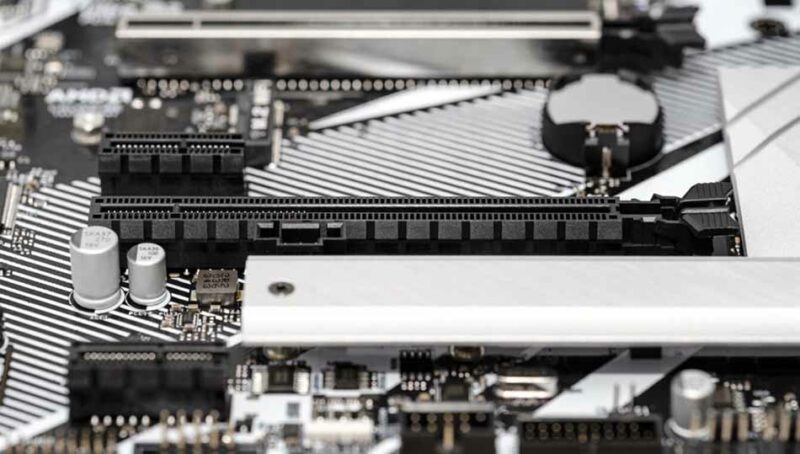PCI-SIG, the industry consortium responsible for defining PCI Express bus specifications, has made PCI Express 7.0 official, scheduled for release in 2025. As with each new version, PCIe 7.0 has doubled the data transfer capacity compared to PCIe 6.0, achieving a transfer rate of 128 GT/s and a maximum of 512 GB/s bidirectionally across the x16 slot, very high values that should bring real benefits, especially for SSDs.
PCI Express 7.0 highlights include:
– Maximum bit rate of 128 GT/s and 512 GB/s bi-directional over the x16 configuration.
– PAM4 system (pulse-amplitude modulation 4-stage).
– Focus on channel parameters and promised range
– Low latency and high reliability
– Improved power efficiency
– Compatibility with all previous PCIe generations
PCIe 7.0 is 4x faster than PCIe 5.0, just released
The following tables show the advances in specifications for all versions of the PCI Express bus, which with PCIe 7.0 is 64 times faster than PCIe 1.0.
PCI-SIG believes PCI Express 7.0 will bring breakthroughs in applications such as 800G data networking, quantum computing, high-performance data centers, military and aerospace, and others.
PCI Express 5.0 (PCIe 5.0) has only recently reached the consumer market, with few solutions delivering real value. SSDs are among the products that benefit from this advancement but in very specific usage scenarios. Who can take advantage of such fast SSDs? Primarily data centers with servers that require high data traffic. For traditional consumers, PCIe 4.0 SSDs already offer incredible speeds, with the latest models exceeding 7000 MB/s.
Another feature of the new PCI Express is that they support more power, enabling bus-powered solutions without power cables.
PCIe 5.0 solutions have just entered the market and PCIe 7.0 will be a few years away.
When it comes to PCI Express in the computing world, the first production models with PCIe 5.0 support were recently released by Intel with the 12th generation of PCIe. AMD will use the same bus in the new Ryzen 7000, which will be released later this year.
Solutions with PCIe 6.0 are not yet officially planned for the consumer market, let alone PCIe 7.0, which could still take years.
